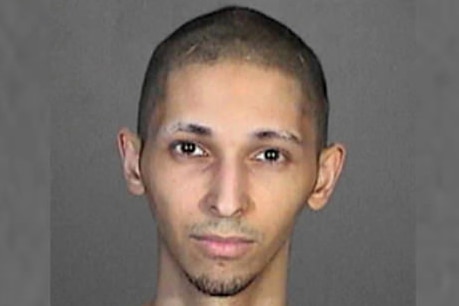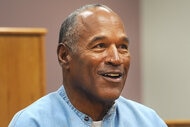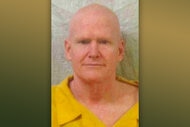Create a free profile to get unlimited access to exclusive videos, breaking news, sweepstakes, and more!
Serial 'Swatter' Phoned In FBI, FCC Bomb Threats, Feds Say
Tyler Barris is already facing a slew of state and federal charges, including manslaughter, in the Kansas "swatting" death of Andrew Finch. Now he's charged with phoning in bomb threats to the FBI and FCC.

A California man accused of being a serial “swatter” made fake bomb threats against the FBI and the FCC, according to a federal grand jury indictment unsealed this week.
Authorities say alleged hoaxer Tyler Barriss has repeatedly called 911 to make fake reports, hoping officials would send out Special Weapons and Tactics or SWAT teams and other police units as well as evacuate targeted buildings — a practice that's known as "swatting." Barriss, who served two years in jail for making a bomb threat against KABC7 in Los Angeles, caused the death of a Kansas man during one of his hoaxes, authorities say.
In the bomb hoax incident, the U.S. Attorney's Office for the District of Columbia charged Barriss, 25, of Los Angeles, with two counts of conveying false information concerning use of an explosive, according to a news release. Officials unsealed the indictment on Thursday.
According to federal prosecutors in Washington, Barriss telephoned in a bomb threat that disrupted a hearing of the Federal Communication Commission and made “threats by phone regarding explosives placed inside and outside of the J. Edgar Hoover Building, the headquarters of the FBI,” according to a news release.
Barriss allegedly disrupted an December 14, 2017 FCC hearing in which the agency repealed so-called net-neutrality rules, according to an FCC order.
Also this week, federal prosecutors in Wichita, Kansas, unsealed a separate indictment against Barriss and two feuding gamers, Casey Vinver, 18, and Shane Gaskill,19, alleging that they caused the death of Wichita resident Andrew Finch.
Viner, who lived in Ohio, and Gaskill, of Wichita, were playing the video game “Call of Duty” online when they got into a dispute, according to the indictment. Viner then reached out to Barriss and asked him to “swat” Gaskill, giving him an address. It turned out that Gaskill no longer lived at that address — instead, the modest two-floor house was occupied by Finch, his family and renters.
On December 28, 2017, Barriss telephoned police and said he had shot and killed his father and was holding his mother and brother, at gunpoint, in a closet, according to the indictment. When police asked Barriss where he was, he gave Finch’s Wichita address, the indictment alleges.
A Wichita police officer shot Finch to death when he opened the door to see why cops were outside his home, his mother told the Wichita Eagle. The officer killed Finch from across the street with a single shot from an assault rifle, body camera footage of the shooting shows.
Barriss also faces charges in Kansas state court in connection with Finch’s death.
Marc Bennett, the Kansas state prosecutor whose district includes Wichita, declined to criminally prosecute the police officer who shot Finch, Justin Rapp. “Under Kansas law and the facts of this case, I conclude that no criminal charges will be filed against the officer for the death of Andrew Finch,” Bennett’s report said.
Kansas prosecutors instead arrested Barriss and charged him with making false police reports and involuntary manslaughter.
At a hearing on Tuesday in the state case against Barriss, Rapp testified he did not actually see a firearm in Finch’s hand when he fatally shot him, but nevertheless believed Finch was armed and about to shoot other police officers because it looked to him like Finch “squared up” on them, according to the Wichita Eagle.
After the hearing, a Kansas court ruled there was enough evidence for the case against Barriss to proceed to trial.
Barriss’s lawyer in that case, Bradley Sylvester, told Oxygen.com that the true cause of Finch’s death was not his client, but a “gung-ho, crazy cop.”
"Do we expect police officers to act appropriately? Or do we expect police officers to start wailing away, shooting people?”
“That’s going to be the question for the jury,” Sylvester said.
A lawsuit filed by Finch’s surviving family members against Wichita police alleges that the department allows the unrestrained use of deadly force, and that its officers have a shooting-death ratio 11 times greater than the national average.
[Photo: Glendale Police Department]













